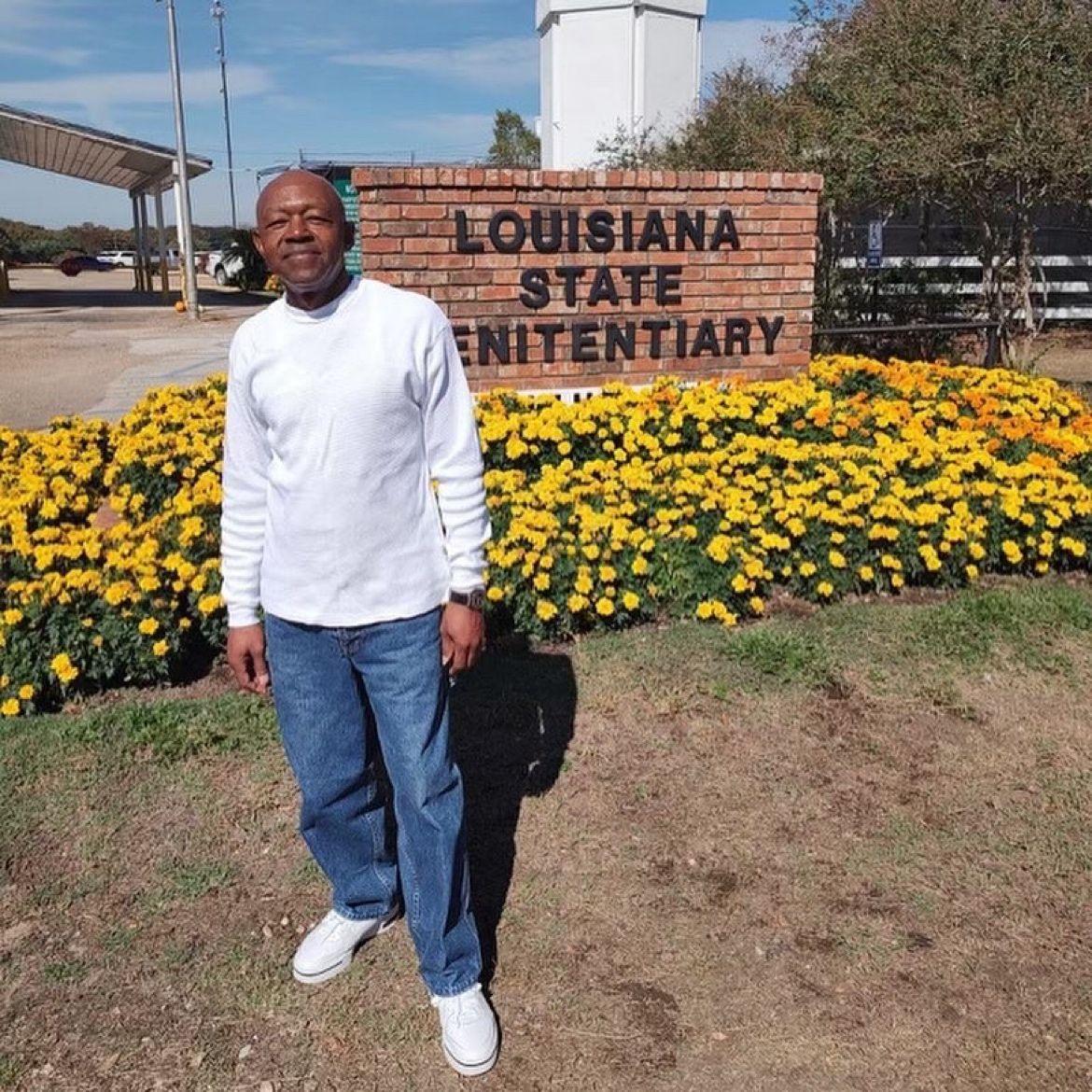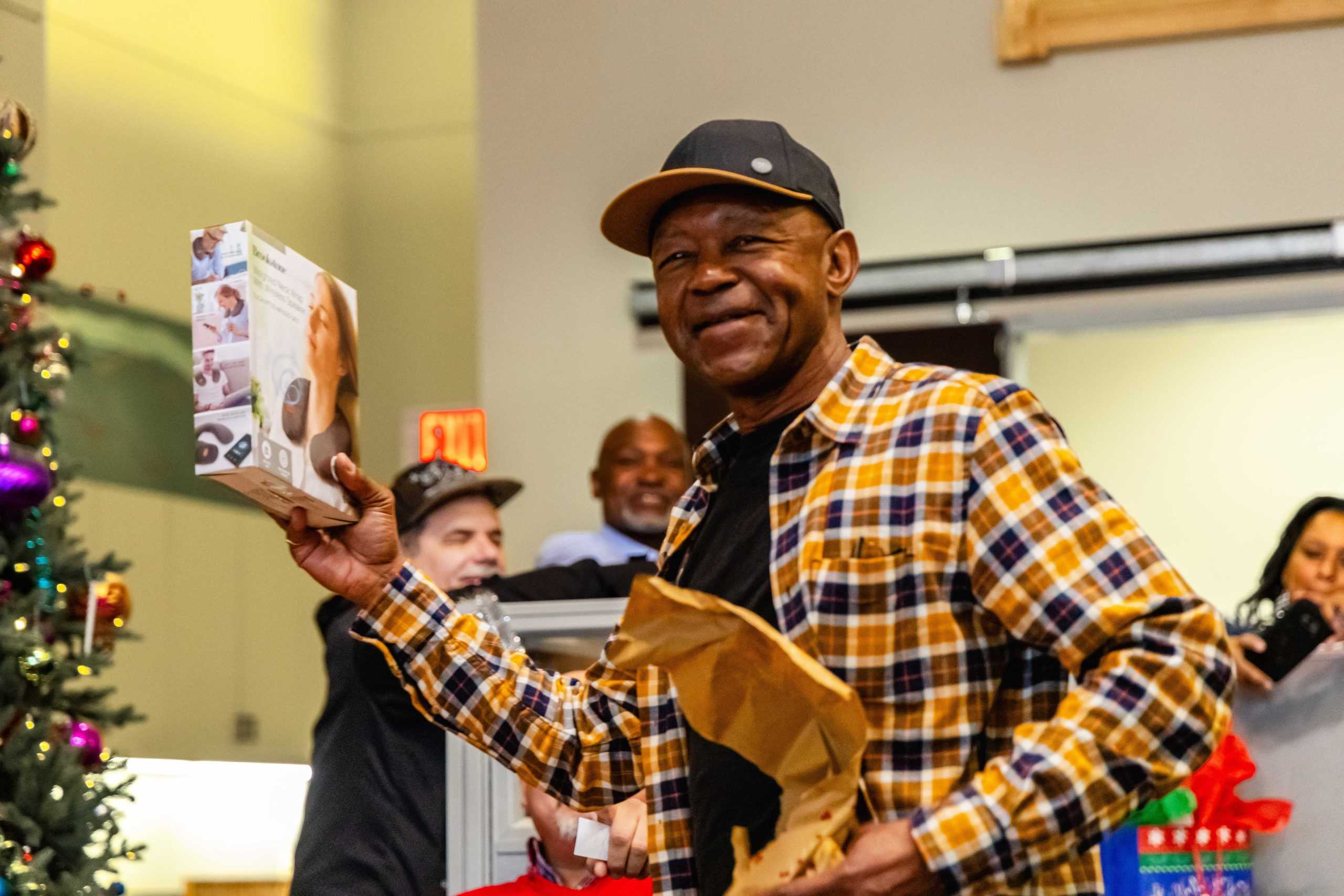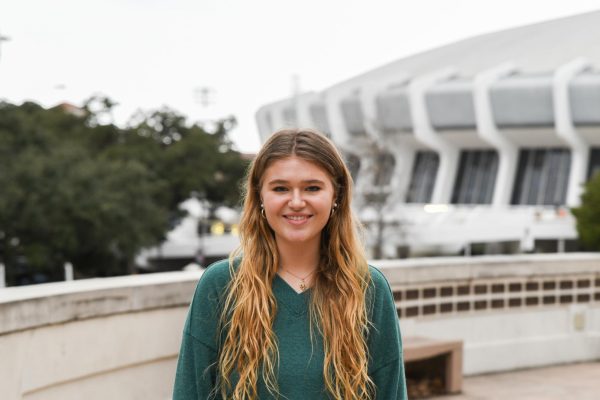During Gov. Jeff Landry’s recent nine-day special session on crime, the state lowered the age for defendants to be considered adults, almost entirely abolished parole and limited good-time credit.
The Louisiana Parole Project works with LSU Law School’s Parole and Re-entry Clinic to provide incarcerated men and women in the state an opportunity for parole release.
When asked about how the new legislation will impact Parole Project’s work, Executive Director and Co-founder Andrew Hundley said the organization will continue to educate people on the power of second chances.
“When it comes to criminal justice, it’s like a pendulum on a clock,” Hundley said. “If you go back for years, we get tough on crime, we pass reforms, we get tough on crime again. We’re going to be here to show the evidence that the people who have come home from these second chance opportunities have mostly been successful.”
READ MORE: ‘It’s just concerning’: LSU freshmen voice opinions on new concealed carry law
Because of legislation Parole Project supported, people who were convicted before August 2024 will have expanded parole eligibility if they have served long prison sentences.
Hundley was given a life sentence without the option of parole in 1997 when he was 15 years old. Then, in 2012, the U.S. Supreme Court ruled that mandatory juvenile life sentences without the option for parole were unconstitutional, giving him a chance for release. In 2016, he became Louisiana’s first juvenile lifer let out on parole.
Hundley went on to earn his bachelor’s degree in sociology with a concentration in criminology from LSU in 2019. He was able to finish his degree in under three years because of the classes he took during his sentence. Then he earned his master’s degree in criminology and justice from Loyola University New Orleans in 2021. Today, he’s an adjunct professor at Loyola.
The Parole Project is a nonprofit organization that provides advocacy and re-entry support to incarcerated and formerly incarcerated men and women in Louisiana. It provides transitional housing, case management, classes and programming, social work, mental health and family and community services to these individuals to support their re-entries when they’re released from prison.
“We work to help them get jobs that utilize these skills that we’ve taught them… so it’s like they have training wheels on,” Hundley said. “They’re with us, they’re saving their money, they are working towards self-sufficiency while they have a staff of people mentoring them, giving them a safe place to live until they are ready to get into their own apartment.”
Darnell Lewis, 49, was represented by the Parole Project. He was granted release with parole on Feb. 27. He served 27 years of his 160 year sentence, entering prison when he was 22 years old.
“I was blessed to get out, for one,” Lewis said. “And coming here [to Parole Project] and meeting all these beautiful people… Since I’ve been here, I’ve just been blessed to see the environment changing already. It’s nothing but positive speaking, telling me they’re going to help me.”
The Parole Project provides a minimum of one year of support for its clients. The organization helps them obtain important documents, such as birth certificates and social security cards, that they might have lost while they were in prison. They get clients phones and teach them how to use technology. They also open bank accounts for clients and teach them how to budget and build credit.
Parole Project works with state agencies such as the Department of Public Safety and Corrections and other criminal justice entities to learn which individuals have upcoming parole hearings. Hundley said that though these agencies were initially uneasy about working with people who were recently released from prison, they have cultivated a cooperative relationship.
“At the end of the day, our priority is the same as theirs, and that’s public safety,” Hundley said. “Our vision is that we achieve public safety when people come home from prison and have an opportunity to be successful, and go from being burdens on a system to being contributors to a system.”
READ MORE: What it would have cost Louisiana to provide summer food benefits for poor children
Parole Project selects incarcerated individuals who have demonstrated growth and maturity since their sentencing through disciplinary and work records and educational or vocational training. Staff also discern whether or not clients addressed what brought them to prison in programs available to them, such as substance abuse or anger management.
LSU Law School’s Parole and Re-entry Clinic is one of six clinics at the Paul M. Hebert Law Center. Professor Robert Lancaster, the assistant dean of experiential education at the Law Center, started the parole clinic in 2014 to offer students experience in representing clients. The clinic also provides experience with the lawyering skill of writing narrative advocacy, a skill that Lancaster said is one of the largest responsibilities a lawyer has.
“It’s an ability while you are in law school to really impact individual peoples’ lives and at the same time really work on your own professional development as a lawyer and your own skill set as lawyers, regardless of whatever area of practice you go into,” Lancaster said.
Students in this clinic interview clients and witnesses, gathering information about their clients throughout the semester. That work culminates as a written biography that clients can use to describe their work in prison and why they are prepared for release. Students also accompany their clients to hearings.
Lancaster found that individuals who were well-positioned in prison for release were not being released, primarily because they didn’t have a viable re-entry plan. A lot of these clients had outlived their families or were too old to work when they were released. This led to the clinic’s partnership with the Parole Project.
Lancaster is a former president of the Parole Project. He co-founded the organization in 2016 with Hundley and Keith Nordyke, a professor at LSU’s Law Center and Hundley’s representation for his parole hearing.
“Andrew, as executive director of that organization, has built it and grown it beyond anything I think we ever imagined in 2016,” Lancaster said.
In the fall 2023 semester, the Clinic’s success rate was 94%. One of its many clients was Johnathan Bryant, who was granted release with parole after spending 32 years in prison. Bryant, 51, was 19 when he began his life sentence without parole.
With the representation he received from an LSU law student, Bryant applied for clemency from former Gov. John Bel Edwards, which granted him parole eligibility. Under representation from LSU Law and the Parole Project, he was released with parole on Oct. 23.
READ MORE: Two bills proposed by Louisiana’s Legislature could threaten LGBTQ+ rights in schools
Since being released, Bryant has purchased a truck, leased an apartment, joined a church and began a job as a forklift operator at Holmes Building Materials.
“I changed for the better,” Bryant said. “I wanted to become a better person. I didn’t want to be the same 19-year-old. I wanted to do better, positive things.”
John Gullo Long, Parole Project’s communications manager, connected with Parole Project through a contact with LSU’s Tiger Prison Project. Long graduated from LSU in 2022 as a public relations major. He said working at Parole Project has expanded his knowledge from what he learned at LSU.
“The familiarity that I’ve gained here with the idea of humanization, I think that’s something that I could not have gained from my classes,” Long said.
LSU’s Tiger Prison Project works to mobilize the student body in support of prison reform. The Parole Project partners with TPP to hold weekly workshops, where LSU student volunteers teach clients about technology, resume writing and public transportation.
“Our clients really are normal people that have the same goals and aspirations that the rest of us do,” Hundley said. “They want to be successful. They want to live in safe communities… So, I think that a lot of people would not understand that people who come home from prison are aspirational and want to better their lives and better their communities.”











